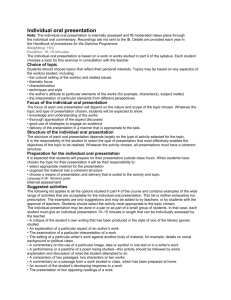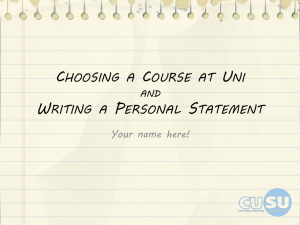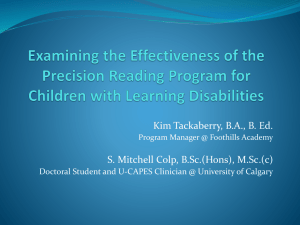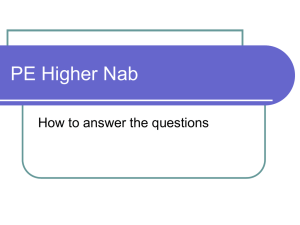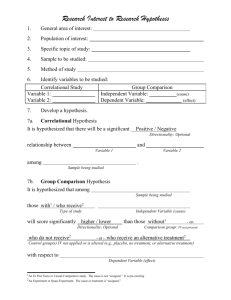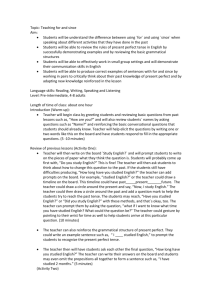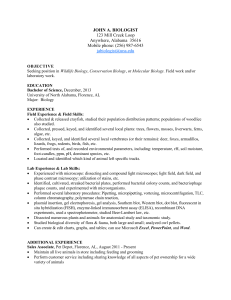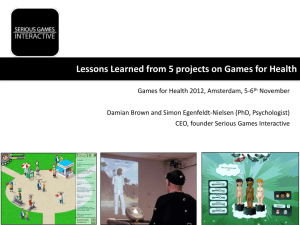спецификация. анг
advertisement
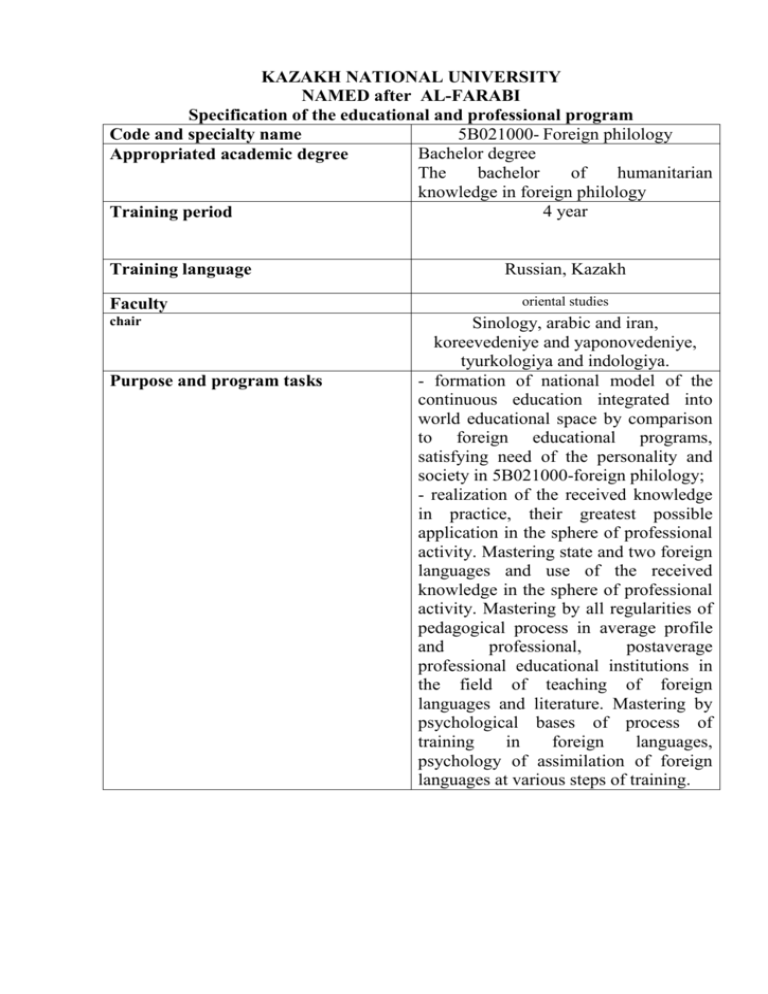
KAZAKH NATIONAL UNIVERSITY NAMED after AL-FARABI Specification of the educational and professional program 5В021000- Foreign philology Code and specialty name Bachelor degree Appropriated academic degree The bachelor of humanitarian knowledge in foreign philology 4 year Training period Training language Faculty chair Purpose and program tasks Russian, Kazakh oriental studies Sinology, arabic and iran, koreevedeniye and yaponovedeniye, tyurkologiya and indologiya. - formation of national model of the continuous education integrated into world educational space by comparison to foreign educational programs, satisfying need of the personality and society in 5B021000-foreign philology; - realization of the received knowledge in practice, their greatest possible application in the sphere of professional activity. Mastering state and two foreign languages and use of the received knowledge in the sphere of professional activity. Mastering by all regularities of pedagogical process in average profile and professional, postaverage professional educational institutions in the field of teaching of foreign languages and literature. Mastering by psychological bases of process of training in foreign languages, psychology of assimilation of foreign languages at various steps of training. Contents of the educational and professional program Competences - - - - - Disciplines State Compulsory Module - knowledge of the main stages of the contemporary HRK1101 History of the Republic history of forward development of statehood of of Kazakhstan Kazakhstan (1991-2013) in a context of the world and KLPP1102 Euroasian historical process; Professionally-oriented Kazakh - ability freely to interpret and creatively to use (Russian) Language FLPP1103 scientific and historical and philosophical knowledge Professionally-oriented Foreign for generalization of factors of success of the Language Kazakhstan model of development on a way to the PhSK2104 taken place state – the Republic of Kazakhstan; - competent use of language and lingvokulturologichesky knowledge for the solution of problems of communication in polylingual and polycultural society of the Republic of Kazakhstan and on the international scene Philosophy of Scientific Knowledge 1. Social and Communicative Module PsIC2201 - knowledge of the social and ethical values based on Psychology of Interpersonal public rules of law and tolerance to various cultural and Communication confessional traditions; ThAPS2202 - knowledge of the main regularities of functioning and Theoretical and Applied nature and society development, ability adequately to be Political Science guided in various social and economic, political and EPSS2203 emergency situations. Ethics of Personal and Social Success CR2204 Culture and Religion GAS2205 General and Applied Sociology HLS2206 Human Life Safety ESD2207 Ecology and Sustainable Development KL2208 Kazakhstan Law FE2209 Fundamentals of Economics 2. Vocational Modules 2.1. Natural Sciences (STEM) Knowledge: the fundamental principles of modern information technologies in a context of evolutionary development of informatization of society, a perfect condition and a tendency of development of modern information technologies; Ability: to define problem zones at the solution of theoretical tasks, definition and a formulation of key problems, search of ways of the creative solution of educational, linguistic problems in new conditions of the developing world with use of innovative, information and communication technologies; to analyze complex module ITPP 2301 Information Technologies for Professional Purposes CMNS 2302 Concept of modern natural sciences (language and ecology) challenges of applied informatics and to find effective methods of the decision, to apply the principles and technologies of information security, information security, administration and the organization of safety of databases; Possession: skills of management of information, work on the computer, possession of modern office equipment and means of communication and free orientation in space the Internet and use of its opportunities for the professional purposes; 2.2. Basic Professional Modules Module 1. Basic foreign language Knowledge: theoretical bases of studied language, I ruled BFL1401 phonetics of studied language; the main processes of changes in Basic foreign language (level phonetics, grammars and lexicon of studied language; A1, A2) Ability: to perceive language as the major means of BFL1402 communication; to realize communication of language with Basic foreign language (level thinking, speech, ethnos and culture of the people carrier of a B1) studied foreign language; BFL2403 Possession: skills of the komparativny analysis of the grammatical, Basic foreign language (level phonetic phenomena with the facts of the native language for B2) detection of difficulties of their assimilation; skills of communication in studied language within household subject, BFL2404 ability to perceive information in studied language. Basic foreign language (level B2 advance) Module 2. Practical course of studied language Knowledge: the principles of communication with people in an IRCPSL1405 official and informal situation, knowledge of rules of etiquette and Introduction and remedial culture of communication of the people carrier of a studied foreign course on phonetics of studied language; language Ability: to carry out cross-cultural dialogue in the general and SGSL1406 professioknalny spheres an obshchekniya; to use the potential of a Standard grammar of studied studied foreign language for achievement of the komkmunikativny purposes and desirable impact on the partner in a kommuknikation language (request of information, motivation to action, ubezhdekny, an PWIC1407 The practical work on overpersuasion, etc.) Possession: skills of a sociocultural and cross-cultural intercultural communications komkmunikation, obespechikvayushchy adequacy of social and CPh1408 profesksionalny contacts; Classical philology Module 3. Special foreign language Knowledge: concepts and the terms, allowing to open specifics of SFL3409 the chosen profession, a concrete language material in aspect of Special foreign language – various approaches general (level C1) Ability: to prepare publications, to hold presentations, messages of SFL3410 discussion and to protect the presented work in studied language; Special foreign language – Possession: specialty terminology in a foreign language; skills of special- professional (level communication in a foreign language on special subject. C2) FLAP4411 Foreign language for the academic purposes Module 4. Foreign language Knowledge: concepts and the terms, allowing to open specifics of the chosen profession, a concrete language material in aspect of various approaches on foreign western and east language; Ability: to prepare publications, to hold presentations, messages of discussion and to protect the presented work in studied east and western language; FL2412 Foreign language ( western) FL2413 Foreign language ( westerncontinue) FL3414 Possession: specialty terminology in a foreign language; skills of Foreign language ( westerncommunication in two foreign languages on special subject. advance) POWS3415 Practice of oral and written speech (east) LP4416 Language of the press (east) Module 5. Bases of the theory and technique of a studied foreign language Knowledge: the main ways of achievement of equivalence in BThTL3417 transfer, the main phonetic, lexical, grammatical, word-formation Bases of theory of target language phenomena and regularities of functioning of a studied foreign LSL3418 language, its functional versions Lexicology of studied language Ability: to apply the main methods of teaching; to express the MMTFL3419 thoughts in a written and oral form; Modern methods of teaching Possession: foreign language skills in an oral and written form for foreign languages communication implementation in educational, scientific, professional and welfare, scientific and professional spheres of communication; system of linguistic knowledge; cognitive дискурсивными the abilities directed on perception and generation BPPPh 2420 Bases of professional pedagogics and of coherent monological and dialogical texts in oral and written psychology forms Module 6. General theoretical course and literature Knowledge: conceptual framework, the principles and approach ILS1421 Introduction to language methods to the analysis of works of east literature; science Ability: to use literature works of art as the tool of an ISPh1422 Introduction in special idealoobrazovaniye and spiritual self-improvement of the philology personality; LCSL 3423 The literature of the Possession: increase of the general literary and historical culture; country of studied language from skills of presentation of a literary material from a position of future sources before the XX century professional activity, the analysis of a concrete literary material in ILC 3424 Introduction in literary aspect of various approaches criticism LPCA 4425 Literature of the people of the countries of the abroad 2.3. Modules for Individual Educational Trajectories (IET) IET 1( philolog-chinese) IET 2(philolog arabic) IET 3(philolog turkish) IET 4(philolog japanese) IET 5( philolog - korean) IET 6( philolog -hindi) IET 7( philolog - persian ) - ability to write scientific articles and to participate in scientific SW 2501 Scientific Writing discussions in a Kazakh/Russian/foreign language; Knowledge: the main historical processes and the phenomena of the country of studied language, the conceptual and categorial device of science of theory of translation; questions of social and economic and political development of the country of studied language Ability: to draw parallels of development of historical processes in Kazakhstan and in the country of studied language; to work with historical sources; AMHSC3502 Ancient and medieval history of the studied country CRSC3502 Culture and religion of the studied country CL3502 Possession: skills of writing of scientific work; techniques of search, analysis and processing of a material of research. • to analyze culture studied the countries as system of cultural phenomena; • to be able to allocate types of communications between culture elements; • to understand historical links of cultural dynamics of the studied country of culture and language; • to participate in solution of problems of sociocultural dynamics; • to understand cultural codes and communications; Knowledge: the system of linguistic, culturological, historical knowledge including knowledge of the main phonetic, lexical, grammatical, word-formation phenomena and regularities of functioning studied main and second east languages, their functional versions, knowledge of history, culture, religion of the country of studied language; main ways and transfer receptions, including translation of scientific and technical and publicistic texts Ability: to use a conceptual framework of theoretical and applied linguistics, theory of translation and the theory of cross-cultural communication for the solution of professional tasks; to structure and integrate knowledge from various areas of professional activity and possesses ability of their creative use and development during the solution of professional tasks Possession: the international etiquette and rules of behavior of the translator in various situations of interpretation and translation; standard techniques of search, analysis and processing of a material of research; culture of thinking, it is capable to the analysis, synthesis of information, statement of the purposes and a choice of ways of their achievement, owns culture of oral and written language Knowledge: the system of linguistic, culturological, historical knowledge including knowledge of the main phonetic, lexical, grammatical, word-formation phenomena and regularities of functioning studied main and second east languages, their functional versions, knowledge of history, culture, religion of the country of studied language; main ways and transfer receptions, including translation of scientific and technical and publicistic texts Ability: to use a conceptual framework of theoretical and applied linguistics, theory of translation and the theory of cross-cultural communication for the solution of professional tasks; to structure Classic language ICEL3502 Interactive course of east language AMHSC3502 Ancient and medieval history of the studied country ICCG3502 The Indian culture in the conditions of globalization CRSC3503 Culture and religion of the studied country SSL3503 Stylistics of studied language MCHSC3503 Modern and contemporary history of the studied country CEL3503 Culture of an exchange of the letter FMSIS4503 Features of multi-religious system of the Indian society SSL3504 Stylistics of studied language BCWL3504 Business communication in the western language CG3504 Comparative grammar LT3504 Literary translation DTL3504 Derivation of target language ThPT3505 Theory and practice of translation DTL3505 Derivation of target language MCEL3505 Multimedia course of east language and integrate knowledge from various areas of professional activity and possesses ability of their creative use and development during the solution of professional tasks Possession: the international etiquette and rules of behavior of the translator in various situations of interpretation and translation; standard techniques of search, analysis and processing of a material of research; culture of thinking, it is capable to the analysis, synthesis of information, statement of the purposes and a choice of ways of their achievement, owns culture of oral and written language Knowledge: the system of linguistic, culturological, historical knowledge including knowledge of the main phonetic, lexical, grammatical, word-formation phenomena and regularities of functioning studied main and second east languages, their functional versions, knowledge of history, culture, religion of the country of studied language; main ways and transfer receptions, including translation of scientific and technical and publicistic texts Ability: to use a conceptual framework of theoretical and applied linguistics, theory of translation and the theory of cross-cultural communication for the solution of professional tasks; to structure and integrate knowledge from various areas of professional activity and possesses ability of their creative use and development during the solution of professional tasks Possession: the international etiquette and rules of behavior of the translator in various situations of interpretation and translation; standard techniques of search, analysis and processing of a material of research; culture of thinking, it is capable to the analysis, synthesis of information, statement of the purposes and a choice of ways of their achievement, owns culture of oral and written language Knowledge: conceptual framework, the principles and approach methods to the analysis of works of modern literature; Ability: to use literature works of art as the tool of an idealoobrazovaniye and spiritual self-improvement of the personality; Possession: increase of the general literary and historical culture; skills of presentation of a literary material from a position of future professional activity, the analysis of a concrete literary material in aspect of various approaches Ability. Orientation to formation of development of skills and уменй foreign-language the speech activity (audition, govoreniye-monological, dialogical speech), reading, letters; orientation to mastering by studying aspects of language (a pronunciation, lexicon, grammar); the complex purpose of a lesson (training in communication in a foreign language, training of informative activity with use of a foreign language. BCESL4506 Business communication and etiquette on studied language DTL4506 Derivation of target language SSL4506 Stylistics of studied language SIL2506 The second Indian language beginning level MN4507 Modern novellistica BEL4507 Business east language BSLM4507 Bases of studying of language mentality SIL3507 The second Indian language continuing Level SIL3508 The second Indian language the advanced level MCHSC4508 Modern and contemporary history of the studied country MCHSC4508 Modern and contemporary history of the studied country TSL4518 Terminology of studied language LC4508 Lingvoculturology SSL4508 Stylistics of studied language Knowledge: the main historical processes and the phenomena of the LC4509 country of studied language, the conceptual and categorial device of Lingvoculturology science of theory of translation; questions of social and economic ICEL4509 and political development of the country of studied language Interactive course of east Ability: to draw parallels of development of historical processes in language Kazakhstan and in the country of studied language; to work with CLPh4509 historical sources; Possession: skills of writing of scientific work; techniques of search, Comparative lexicology and phraseology analysis and processing of a material of research. NLLSL4509 New and latest literature of studied language MLSC4509 The mass media language of the studied country LPI4510 Language policy in India TSL4510 Terminology of studied language Knowledge: the main historical processes and the phenomena of the country of studied language, the conceptual and categorial device of science of theory of translation; questions of social and economic and political development of the country of studied language Ability: to draw parallels of development of historical processes in Kazakhstan and in the country of studied language; to work with historical sources; Possession: skills of writing of scientific work; techniques of search, analysis and processing of a material of research. LT4511 Literary translation AMHSC 4511 Ancient and medieval history of the studied country CRSC4511 Culture and religion of the studied country LC2511 Lingvoculturology Knowledge: the main historical processes and the phenomena of the country of studied language, the conceptual and categorial device of science of theory of translation; questions of social and economic and political development of the country of studied language Ability: to draw parallels of development of historical processes in Kazakhstan and in the country of studied language; to work with historical sources; Possession: skills of writing of scientific work; techniques of search, analysis and processing of a material of research. MLSC4512 The mass media language of the studied country LT4512 Literary translation MCHSC4512 Modern and contemporary history of the studied country LTC4512 Literary translation and criticism 2.4. Interdisciplinary Module Knowledge: the general principles and regularities of development IE2601 Innovative of religious and philosophical traditions in Asia as a whole, and al- Entrepreneurship (trade-wise) Farabi doctrines in particular, welfare functions of these traditions; IPL2602 norms of the Russian literary language, all its speech styles. Intellectual Property Law Ability: to distinguish the general and special in historical OB2603 development of different religious and philosophical traditions, to correlate specifics of the corresponding traditions lying in the basis Oratory bases AFCH2604 of the largest local civilizations of Asia, to historical features of Al-Farabi creative heritage development of these civilizations; to apply the received knowledge TB2605 Tourism bases in the field of rhetoric in research, scientific and educational and FL2606 other kinds of activity, Financial literacy Possession: skills of summarizing of texts on problems of history of IL2607 religion and philosophy history; in the various ways of verbal and International law nonverbal communication, skills of communication in various communicative situations, skills of the analysis of speech works; with messages and reports, oral, written and virtual representation of materials of own researches - - - - 3. Practice 3.1. Educational Practice EP1701 Educational Practice EP 2702 Educational Practice 3.2. Practice Training PT 4703 Practice Training PP 4704 Pedagogical Practice 4. Additional Types of Learning - knowledge of a state policy and snovny achievements of FT Physical Training the Republic of Kazakhstan in the field of physical culture and sport; - knowledge of teoretiko-methodological, hygienic and organizational bases of occupations by physical culture and sport; - ability to use the practical skills providing preservation and strengthening of health, development and improvement of psychophysical abilities and qualities in life; - possession of experience of use of means of physical culture and sport for prevention of diseases, mental wellbeing, development and improvement of qualities and properties of the personality.
